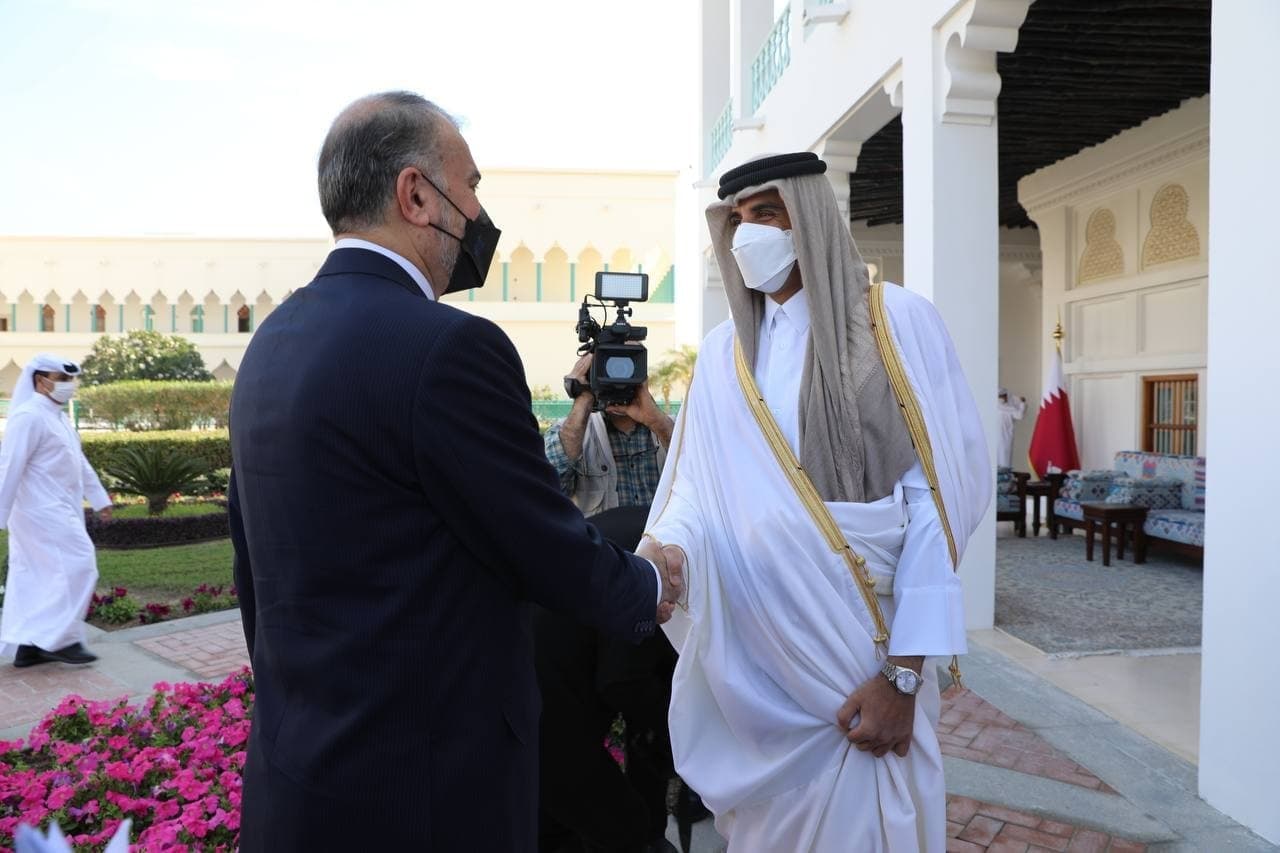Talks aimed at restoring the Joint Comprehensive Plan of Action [JCPOA] are currently taking place in Vienna, while Saudi Arabia and Iran look at ways of solving some of their differences.
Qatar’s Amir Sheikh Tamim bin Hamad Al Thani met with Iran’s Foreign Minister Hossein Amir-Abdollahian on Tuesday during the diplomat’s visit to the Gulf state amid Tehran’s recent efforts to strengthen ties with its neighbours.
According to the Qatar’s News Agency [QNA], Amir-Abdollahian and Sheikh Tamim reviewed bilateral relations and means to enhance them, while also discussing regional and international developments.
The Iranian diplomat also met with his Qatari counterpart Sheikh Mohammed bin Abdulrahman Al Thani on the same day of his visit.
Speaking to the press upon his arrival in Doha, the foreign minister said that the meetings’ agenda with Qatari officials were going include the Islamic Republic’s willingness to offer technical and engineering services during the much-anticipated 2022 FIFA World Cup.
Iran official says World Cup in nearby Qatar provides chance to confront ‘Iranophobia’
“There are opportunities in Qatar, including the organisation of the World Cup, which was discussed in the past, and the possibility of benefiting in this context from Iran’s capabilities in the field of technical and engineering services,” the senior Iranian diplomat told reporters.
Amir-Abdollahian was in Oman on Monday, where he discussed political cooperation between Tehran and Muscat with Deputy Sultan of Oman Fahd bin Mahmoud Al Said and various other officials from the Sultanate.
The Iranian and Omani diplomats also tapped into developments in Yemen, Afghanistan, Palestine and the ongoing nuclear talks in Vienna, which are aimed at reviving the JCPOA.
On Sunday, Amir-Abdollahian said that talks between Tehran and world powers are nearing a “good agreement”, noting that the results still depend on other partiers from the p4+1 –China, France, Russia, the UK plus Germany—as well as the US.
Qatar has maintained its ties with Iran in recent years and previously offered to mediate between the latter and the US while saying that it would “spare no efforts” in restoring the JCPOA.
Tehran-Doha relations strengthened in light of the 2017 GCC crisis when Saudi Arabia, Bahrain, the UAE, and Egypt severed diplomatic ties with Qatar and imposed a land, air and sea blockade on Doha.
The quartet claimed their move was in part due to Qatar’s relations with Iran and Turkey.
Since reconciling, Qatar has offered to mediate between Saudi Arabia, Turkey and Iran, while also offering to mediate between Abu Dhabi, Tehran and Ankara.
There has been a noticeable shift in the UAE and Saudi Arabia’s foreign policies vis-a-vis Iran.
Last year, Saudi Arabia and Iran held four rounds of talks, signaling warming ties between the two regional rivals. More recently, Iran’s Foreign Ministry spokesman Saeed Khatibzadeh said that a fifth round will soon be hosted by Iraq, without mentioning a specific date.
Furthermore, the UAE’s top national security adviser Sheikh Tahnoon bin Zayed Al Nahyan visited Iran in December to discuss bilateral ties between the two countries, a move that suggested a thaw in Tehran-Abu Dhabi relations.







